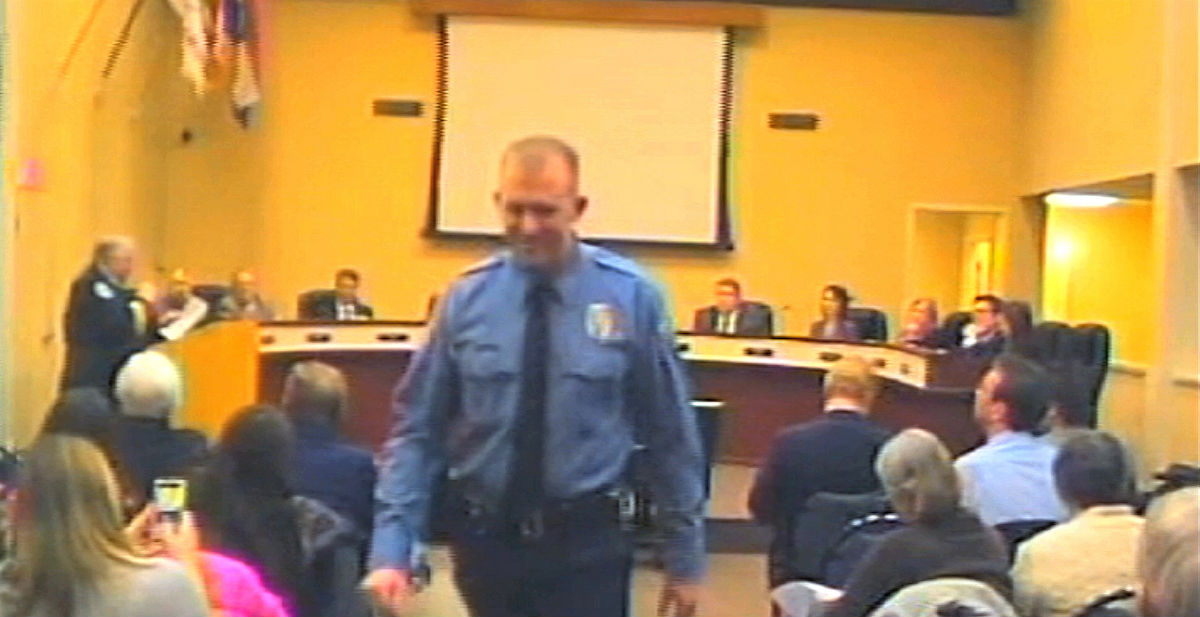FERGUSON, Mo. — As the nation and world watched, a St. Louis County prosecutor announced that a grand jury did not indict Ferguson, Missouri, police officer Darren Wilson in the shooting death of unarmed teenager Michael Brown.
Videos by Rare
THIS IS A BREAKING NEWS UPDATE. Check back soon for further information. AP’s earlier story is below.
—————-
A grand jury has reached a decision about whether to indict a Ferguson police officer in the shooting death of Michael Brown.
In a brief email to reporters, a spokesman for St. Louis County’s top prosecutor said the decision would be announced at 8 p.m. at the downtown courthouse in the St. Louis County seat of Clayton. He offered no other details.
As the nation awaited the announcement, authorities quickly stepped up security around the courthouse. Barricades were erected, and more than 20 Missouri state troopers were seen silently assembling with rifles, 3-foot batons, riot shields and other equipment. Some nearby businesses boarded up their windows, just as many shops have already done near the site of Brown’s death in Ferguson.
School and business closings scrolled on local television as if there were a snowstorm.
Missouri Gov. Jay Nixon urged people to remain peaceful as he appeared at a news conference with the state’s public safety director and the leaders of St. Louis city and county.
“Our shared hope and expectation is that regardless of the decision, people on all sides show tolerance, mutual respect and restraint,” Nixon said.
The governor said he did not know what the grand jury had decided.
Hours before the announcement, dozens of people gathered in the parking lot across the street from the Ferguson Police Department. Many stood right at the edge of the lot, almost in the street, chanting things “no justice, no peace, no racist police.”
One woman leading the group screamed through a bullhorn “indict that cop. Police don’t like it. We want an indictment.”
Several young men in hooded sweatshirts that said “Peace Keepers” kept people from streaming into the street. A couple of people approached the police department building, but a woman asked them to protest the right way and pulled them into a prayer circle. Shortly after that, 15 uniformed officers came out to monitor the protests.
The grand jury has been considering charges against Darren Wilson, the white suburban St. Louis officer who fatally shot the black 18-year-old after a confrontation in August.
The Aug. 9 shooting inflamed tensions in the predominantly black St. Louis suburb that is patrolled by an overwhelmingly white police force. As Brown’s body lay for hours in the center of a residential street, an angry crowd of onlookers gathered. Rioting and looting occurred the following night, and police responded with armored vehicles and tear gas.
Protests continued for weeks — often peacefully, but sometimes turning violent, with demonstrators throwing rocks and Molotov cocktails and police firing smoke canisters, tear gas and rubber bullets.
Nixon said the National Guard will provide security at “critical facilities,” such as police and fire stations and utility substations, and would offer other support as needed.
St. Louis Mayor Francis Slay said demonstrators would be given leeway to slow down traffic in the streets, but “we will not allow them to hurt anyone or damage anyone’s property.”
St. Louis County Executive Charlie Dooley urged people to “think with their head and not with their emotion.”
Anticipating the potential for large demonstrations, more than 15 school districts canceled Monday evening activities and several extended their Thanksgiving break by canceling classes Tuesday. Washington University closed a satellite campus in Clayton.
Pastors were planning a rally and prayer service later Monday evening at the West Side Missionary Baptist Church in St. Louis.
“There’s a lot of hurt, a lot of brokenness. There’s anger and frustration on every side,” said the Rev. Ronald Bobo Sr., the church’s pastor. “We need the hand of God to lead us and guide us.”
The 12-person grand jury met in secret for months, hearing evidence from a wide variety of witnesses as it weighed whether Wilson’s should face charges that could range from involuntary manslaughter to murder. The grand jurors could also decide not to charge Wilson at all.
At the lower end of the possible charges is second-degree involuntary manslaughter, which is defined as acting with criminal negligence to cause a death. It is punishable by up to four years in prison. The most serious charge, first-degree murder, can be used only when someone knowingly causes a death after deliberation and is punishable by either life in prison or lethal injection.



